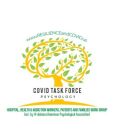Addiction
Addiction and COVID: A Toxic Cocktail
Addiction, including cannabis, is a leading risk factor in COVID-19 infections.
Posted May 16, 2022 Reviewed by Jessica Schrader
Key points
- Alcohol use disorders are the third-leading preventable cause of death.
- Opioid overdose is the leading cause of accidental death for those under age 44.
- Breakthrough COVID-19 infections are more common among those with SUDs.
This post was written by Patricia A. O’Gorman, Ph.D., and Charles W. Morgan, M.D., DFASAM, FAAFP.
With COVID-19 cases ticking up again, we need to refocus on the risk factors for contracting this disease, this time considering how the rapid increase in substance use, particularly alcohol and cannabis, is now a major contributor.
The sad reality is that we all know someone who struggles with addiction, just as most of us know someone who has had COVID-19. With 100,000 dying in 2020 of alcohol use—a 25% increase from 2019—and 100,000 dying of drug overdoses in 2021—a 28.5% from the year before—SUDs are increasing at an increasingly lethal rate.

Alcohol and drug addiction are invisible drivers of COVID-19
To date, there have been many warnings about how the risks of underlying health conditions can lead to breakthrough COVID-19 infections. We have been warned repeatedly that if you have heart disease, cancer, hypertension, diabetes, you should be extra careful, get vaccinated, and get a booster.
High on the list of risk factors for co-occurring disorders is addiction, yet the same level of urgency in messages directed toward those with a SUD is missing. The most common drugs favored by those with SUD are alcohol, cannabis, cocaine, opioid, tobacco, methamphetamines (meth), or other stimulants. Those who vape, an alarming and increasing trend among our youth, are also at high risk for contracting COVID-19.
Breakthrough infections are higher for people with substance use disorder
The risk of breakthrough infections is significantly higher in people with substance use disorder, including those with cannabis use disorder than in those without. Even when controlled for co-occurring diseases and adverse socioeconomic characteristics, they were 55% more likely to experience breakthrough infections as compared to people without substance use disorders.
One reason that those with cannabis use disorder are at increased risk is that when cannabis is inhaled, it directly makes the lungs a site of contact. And there are the compounding effects that active use of other substances poses to these same systems. More studies are needed, but the fact remains that those with substance use disorders are at greater risk.
Cannabis users are often unaware that they have an increased risk of COVID-19
Cannabis use disorder is perhaps the most minimized of all SUDs, with rationalization ranging from “it’s natural … just an herb” to “it’s legal.” The same has been said about alcohol, and we know the devastation caused by its use.
Early research from 2020 indicated that individuals with SUD were particularly at risk for COVID-19, which attacks the respiratory and pulmonary systems.
Those with SUDs who develop COVID-19 may get sicker because, as a group, they are less healthy
Substances can also directly impair immune function, and the use of substances can make people more vulnerable to catching viruses and other infections through such things as poor nutrition, engaging in activities that increase risk, and inability to follow safe practices.
We also know that those with SUD have a significantly higher prevalence of chronic kidney, liver, and lung diseases, cardiovascular diseases, type 2 diabetes, obesity, and cancer as compared to patients without SUD. This means that as a group, they are less healthy than those who do not have SUD.
In 2022, we now have evidence that SUD increases the risk of COVID-19 hospitalizations and death, even after vaccination. “The take-home message for clinicians is that if your vaccinated patient with a SUD gets COVID, be on the alert for a more complicated medical outcome and a higher risk of death,” warned Anne Lembke, M.D., professor of psychiatry and behavioral sciences at Stanford.
Compounding risks for this vulnerable population with SUDs are socioeconomic risk factors
Those with addiction often have underlying health conditions due to adverse socioeconomic risk factors.
These factors frequently place these individuals at a higher risk of poverty: home insecurity, which may manifest in homelessness, “couch surfing,” or living in shelters; a greater risk of incarceration; and a lack of access to adequate health care for all of their health needs, including COVID-19 treatment.
All of these risk factors lead to a greater possibility of being exposed to COVID. And once exposed, they are then further underserved by our health system. Already experiencing stigma because of the widespread belief—even among health care professionals—that these are individuals who are “weak-willed” and make poor choices rather than affected by changes in their brain circuity, they may experience further barriers to COVID-19 treatment.
How those with SUD can be protected from COVID-19
Preventing a COVID-19 infection for someone with a SUD is more complicated but doable:
- Develop specialized messaging and outreach to those with cannabis use disorder, addressing their increased risk. Challenge the idea that cannabis is safe when, in fact, it poses a higher risk for developing COVID-19.
- Acknowledge their increased risk for COVID-19 even after vaccination. Continue to encourage vaccination and boosters for those with addiction while acknowledging that, even after vaccination, they are at an increased risk. This last fact is very important to emphasize. Continued drug use increases their risk even if vaccinated.
- Increase efforts directed at those with SUD to enter treatment for their addiction.
- Respect that addiction is a chronic disease and support recovery efforts that increase recovery capital, such as mutual support involvement and attending 12-step meetings for people with any length of sobriety, including those who have decades of recovery under their belts.
- Avoid actions that increase the likelihood of return to the use of intoxicants and learn to feel comfortable requesting non-risky medication alternatives by sharing with their prescriber that they have an addiction and requesting a consultation with an addiction specialist.
- Encourage those with SUD to seek testing and early treatment for any COVID-19 symptoms. And when testing positive for COVID-19, seek antiviral treatment resources immediately.
- Encourage the use of protective measures for those with SUDs—even after vaccination—such as masking and social distancing.
All of us are beginning to understand that protecting our health will take more energy and focus. Those with SUD, including those with addiction to cannabis, are now understood to be at a much higher risk, a message that needs to be shared.
References
Patricia A. O’Gorman, Ph.D., is co-chair (with Maureen O'Reilly-Landry, Ph.D.) of the Hospital, Healthcare and Addiction working group that is sponsoring this blog. She is a speaker, psychologist, life coach, author of nine books on resilience, trauma, and addiction including: The Resilient Woman; Healing Trauma Through Self-Parenting, the Consulting Psychologist for St. Joseph’s Addiction and Treatment and Recovery Centers, on the Board of Sober St. Patrick’s Day, the former Director of the Division of Prevention for the National Institute on Alcohol Abuse and Alcoholism (NIAAA), and cofounder of The National Association for Children of Addiction. More information is available on PatriciaOGorman.com.
Charles W. Morgan, M.D., DFASAM, FAAFP is an Addiction Medicine Specialist with over 4 decades of experience. He is a Distinguished Fellow of the American Society of Addiction Medicine and a Fellow of the American Academy of Family Physicians. Dr. Morgan currently serves as Medical Director of Addiction Services at Wayne Behavioral Health In Lyons, New York and as Interim Medical Director at St. Joseph's Addiction Treatment and Recovery Centers in Saranac Lake, New York.
COVID-19 News Release (2021, October 6). People with substance use disorders may be at higher risk for SARS-CoV-2 breakthrough infections. National Institutes of Health. https://www.nih.gov/news-events/news-releases/people-substance-use-disorders-may-be-higher-risk-sars-cov-2-breakthrough-infections
Injury Prevention & Control. (2022, February 28). Injuries and violence are leading causes of death. Centers for Disease Control and Prevention. https://www.cdc.gov/injury/wisqars/animated-leading-causes.html
National Center for Health Statistics. (2021, November 17). Drugs overdose deaths in the US top 100,00 annually. Centers for Disease Control and Prevention. https://www.cdc.gov/nchs/pressroom/nchs_press_releases/2021/20211117.htm
National Institute on Drug Abuse. (2020, October). NIAAA: Understanding alcohol’s impact on health. Alcohol and American society: A complex relationship. National Institutes of Health. https://www.niaaa.nih.gov/publications/brochures-and-fact-sheets/understanding-alcohol-impact-health
Petersen, Hans. (2022, April 28). About 88,000 people die from alcohol-related causes annually. Vantage Point. https://blogs.va.gov/VAntage/102051/about-88000-people-die-from-alcohol-related-causes-annually/
Volkow, N. (2020, April 25). COVID-19: Potential implication for individuals with substance use disorders. Scientific American. https://blogs.scientificamerican.com/observations/covid-19-potential-implications-for-individuals-with-substance-use-disorders/
Wang, Q. Q., Kaelbar, D. C., Xu, R., & Volkow, N., D. (2020, September 14). COVID-19 risk and outcomes in patients with substance use disorders: analyses from electronic health records in the United States. Mol Psychiatry 26, 30–39 https://doi.org/10.1038/s41380-020-00880-7
White, A. M., Castle, J. P., Powell, P. A., Hingson, R. W., & Koob, G. F. (2022, March 18). Alcohol-related deaths during the COVID-19 pandemic. JAMA, 327(17):1704–1706. https://doi.org/10.1001/jama.2022.4308
Yasgur, B. S. (2021, October 14). Substance abuse boosts COVID hospitalization, death risk, even after vaccination. Medscape. https://www.medscape.com/viewarticle/960913




